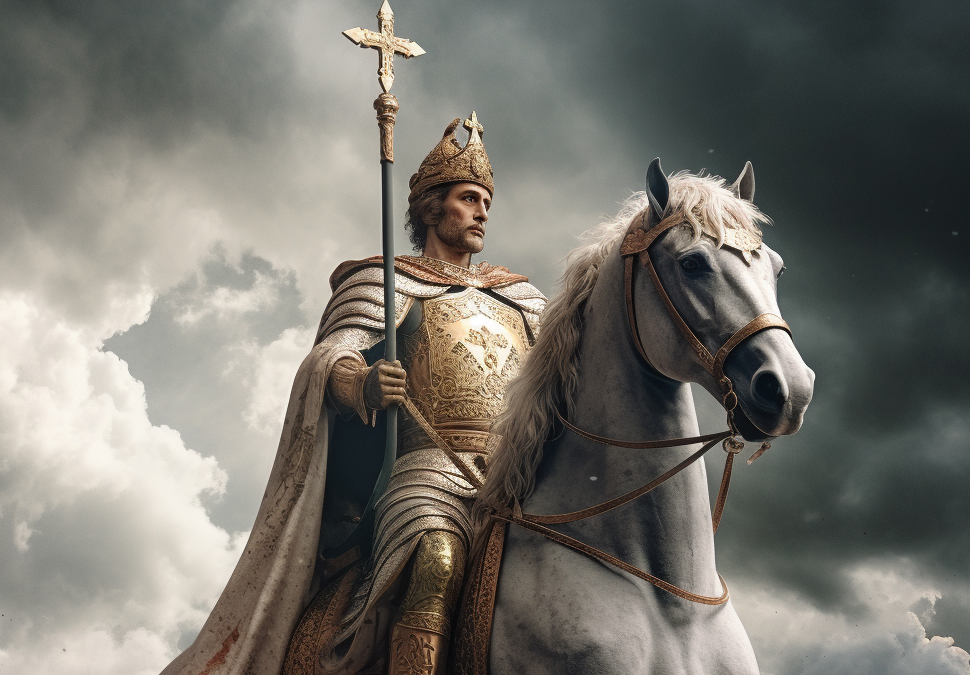As a young man, Constantine served as an officer in the Roman army under his father Constantius Chlorus. He quickly distinguished himself on the battlefield and rose through the ranks to become one of Rome’s most respected generals.
However, it wasn’t until later in life that Constantine experienced a transformation that would change everything. In 312 AD, while preparing for battle against his rival Maxentius for control of Rome, Constantine saw a vision of a cross in the sky with the message “In hoc signo vinces” (in this sign you will conquer).
Moved by this vision and convinced that it was from God, Constantine ordered his soldiers to paint crosses on their shields and banners before going into battle. Against all odds, he emerged victorious at the Battle of Milvian Bridge and became ruler over much of Western Europe.
From that moment on, Constantine embraced Christianity as his own faith and worked tirelessly to promote its growth throughout his empire. He legalized Christianity through the Edict of Milan in 313 AD and encouraged its spread by building churches and other religious institutions. One notable example is St Peter’s Basilica which sits upon Vatican Hill near where St Peter was crucified upside down during Nero’s persecution around A.D.64-67.
Despite some criticisms regarding whether or not politics played a role behind these actions – particularly those pointing out how antithetical using such military symbolism might be compared to Jesus’ teachings – there can be no denying that Christianity flourished under Constantine’s reign.
This period marked significant developments within Christian theology including debates about Christology; perhaps most notably leading up to The Council Of Nicaea where leaders gathered together from all corners debating theological issues resulting in the creation of The Nicene Creed.
Constantine’s mother Helena also played a significant role in the development of Christianity. She was known for her charitable works as well as discovering relics such as the True Cross during her pilgrimage to Jerusalem, which she believed to be one of the crossbeams from Jesus’ crucifixion.
Today, Constantine is remembered not only for his military prowess but also for his contributions to Christianity and his efforts to promote religious tolerance throughout his empire. His legacy lives on through the many churches and institutions he founded, as well as through the continued growth and spread of Christianity around the world.

